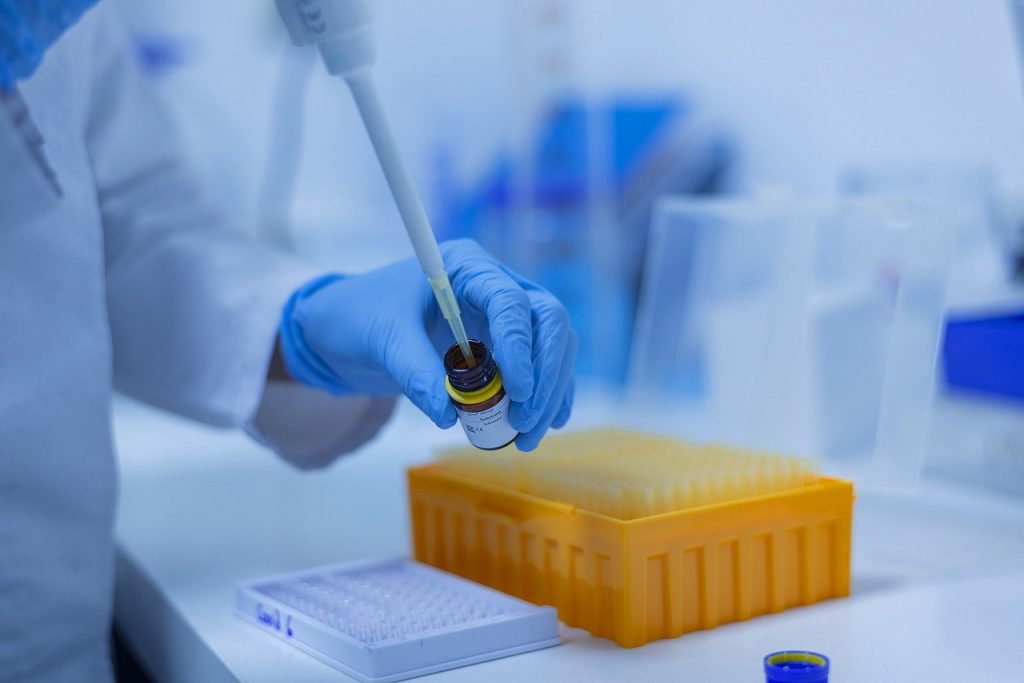The Food and Drug Administration of the U.S. (FDA) recently authorized monoclonal antibody for treatment of COVID-19. On November 9 FDA okayed an emergency use authorization (EUA) for the investigational monoclonal antibody therapy bamlanivimab for the treatment of mild-to-moderate COVID-19 in adult and pediatric patients.
According to the article bamlanivimab is authorized for patients with positive results of direct SARS-CoV-2 viral testing who are 12 years of age and older weighing at least 40 kilograms (about 88 pounds), and who are at high risk for progressing to severe COVID-19 and/or hospitalization. This includes those who are 65 years of age or older, or who have certain chronic medical conditions.
During the research results showed, that bamlanivimab in clinical trials to reduce COVID-19-related hospitalization or emergency room visits in patients at high risk for disease progression within 28 days after treatment when compared to placebo.
Bamlanivimab
Bamlanivimab is a neutralizing IgG1 monoclonal antibody that binds to the receptor binding domain of the spike protein of SARS-CoV-2. Bamlanivimab is not authorized for patients who are hospitalized due to COVID-19 or require oxygen therapy due to COVID-19. A benefit of bamlanivimab treatment has not been shown in patients hospitalized due to COVID-19. Monoclonal antibodies, such as bamlanivimab, may be associated with worse clinical outcomes when administered to hospitalized patients with COVID-19 requiring high flow oxygen or mechanical ventilation.
“As illustrated by today’s action, the FDA remains committed to expediting the development and availability of potential COVID-19 treatments and providing sick patients timely access to new therapies where appropriate, while at the same time supporting research to further evaluate whether they are safe and effective,” said FDA Commissioner Stephen M. Hahn, M.D. “Through our Coronavirus Treatment Acceleration Program, the FDA continues to work around the clock and use every tool at our disposal toward these efforts.”
Monoclonal Antibody For COVID-19 Treatment Trials
“The pre-specified primary endpoint in the phase two trial was change in viral load from baseline to day 11 for bamlanivimab versus placebo. Most patients, including those receiving placebo, cleared the virus by day 11. However, the most important evidence that bamlanivimab may be effective came from the predefined secondary endpoint of COVID-19-related hospitalizations or emergency room visits within 28 days after treatment,” – The FDA said.
Patients at high risk for disease progression, hospitalizations and emergency room visits occurred in 3% of bamlanivimab-treated patients on average compared to 10% in placebo-treated patients.
“The EUA allows for bamlanivimab to be distributed and administered as a single dose intravenously by health care providers. The EUA requires that fact sheets that provide important information about using bamlanivimab in treating COVID-19 be made available to health care providers and to patients and caregivers, including dosing instructions, potential side effects and drug interactions. Possible side effects of bamlanivimab include: anaphylaxis and infusion-related reactions, nausea, diarrhea, dizziness, headache, itching and vomiting,” – The administration warns.
“The FDA’s emergency authorization of bamlanivimab provides health care professionals on the frontline of this pandemic with another potential tool in treating COVID-19 patients,” said Patrizia Cavazzoni, M.D., acting director of the FDA’s Center for Drug Evaluation and Research. “We will continue to evaluate new data on the safety and efficacy of bamlanivimab as they become available.”

